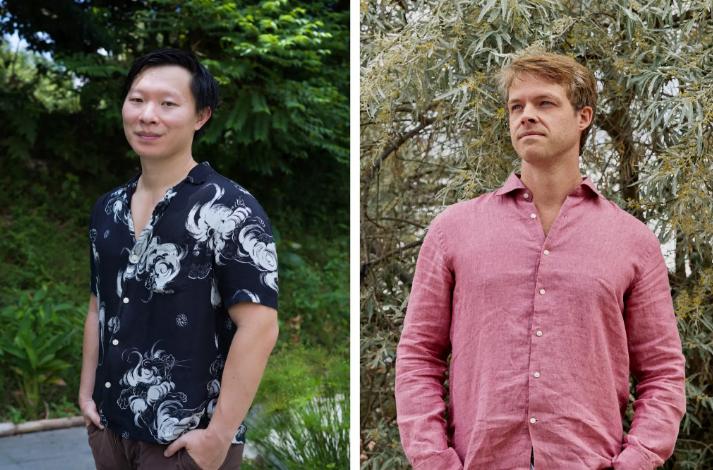Suspected of forging documents, tens of billions of dollars into a mystery, CSW was questioned in court
On June 28th, Australian computer scientist CW (Craig Wright), who claimed to be the creator of Bitcoin, faced severe cross-examination at the US District Court hearing in West Palm Beach, Florida, because he said he could not provide a string of early bitcoins. A list of addresses with tens of billions of dollars in wealth.

CSW was summoned to Florida to participate in the civil lawsuit, explaining why he did not provide the bitcoin address that Nakamoto lost, and he said he might never be able to access those addresses. The hearing was held on June 28th, but the court record was announced today.
The legacy agent of CSW's late partner Dave Kleiman claims that these addresses have $10 billion in wealth and are allegedly stolen by CSW. Although both parties believe that CSW is the inventor of Bitcoin – in fact, their arguments depend on this – but CSW's testimony introduces some disturbing details.
- Zhu Jiaming: Libra may be a test and attempt to solve the "inequality of financial resources"
- Venezuela wants to cast oil coins to 1 million young people, which is good for Bitcoin.
- How does the hedge fund in the crypto asset industry work?
CSW: I don't know (whether the file is forged)
The main argument of CSW is that he is unable to acquire these bitcoins because they are placed in a confidential trust fund protected by a complex encryption mechanism, subject to a complex legal agreement drafted by some lawyers. He also said that he did not want to get these bitcoins, because it alludes to him that he is Sakamoto Satoshi – it is really strange, because CSW has invested a lot of money in order to prove that he is Sakamoto. The sin has prosecuted the skeptic.
At the hearing, the plaintiff’s lawyer questioned CSW and believed that the computer scientist had forged many documents and submitted them to the court as evidence. For example, the metadata for several emails allegedly traceable back to 2011 and 2012 was "recently put on." Another letter that was allegedly issued in 2011 appeared in the fonts from 2015.
However, CSW denied any intervention and stated that the server from which the file originated was “stealed”. He testified that the documents submitted were “pdf documents” rather than legal copies of the relevant letters – he said that the plaintiff and other people who accused him of being “Zhong Bencong” tried to frame him (their accusations) “provable is fake".
Later, the plaintiff’s lawyer questioned a company that CW claimed to have purchased, saying the company was the beneficiary of the confidential trust fund. "Well, I will just say it," the plaintiff’s lawyer said. “A company that was acquired by you until 2014 was listed as a beneficiary of the trust document created in 2012?”
CSW replied: "No, you put the documents I don't know."
Plaintiff's lawyer: "What documents did you generate in discovery?"
CSW: "Yes, from other devices in our company."
Prior to this, CSW was asked whether all the documents he provided were true at the outset, and he repeatedly stated that the documents were indeed in his “mastery”, but the documents themselves were not necessarily true.
Lawyers are more direct on these issues. "Dr. Wright, are these documents forged?" he asked. "I don't know," CSW replied.
CSW VS Kleiman: The long court road
CSW claims that he invented Bitcoin and said that Dave Kleiman, who died in 2013, helped him. But last year, Kleiman's legacy agent accused CSW of fraudulently transferring about 1 million bitcoins (currently worth more than $10 billion) that he and Kleiman had dug together.
Wright said that he does not owe anything to Kleiman, he can't get these coins because they are in a secret trust controlled by a third party he doesn't know, and the keys to these funds are unknown.
However, at the end of June, the court summoned him to Florida to determine whether his failure to submit information on these bitcoin-related addresses constituted contempt of court.
In court, CSW regrets his "invention of his own." He said that the invention was devastated by criminal activities. He said that he originally wanted to destroy this huge amount of wealth, and after some persuasion he gave the key to Kleiman. “Dave advised me not to destroy them completely,” he said. "If I follow my way, I will use a hammer to wear these bitcoin hard drives."
He said that he regretted inventing bitcoin because it was related to criminal activities such as drug trafficking and money laundering. He claims that his bitcoin "forking" BSV meets the requirements of law enforcement.
CSW has made a conflicting and unusual description of the Bitcoin protocol in several ways. He called the technology "Mandela Network" and claimed that the term "public address" was used improperly, although the case depended on how many such "public addresses" he provided.
He said that in the Bitcoin network, there is no public address at all.
He said that the main reason he could not get these bitcoins was that he lacked some "key parts" held by Kleiman, and that these "key parts" (ie, another part of the private key) would be handed over to CSW next year. But he said that if he can't get the rest of the private key, he may never get it.
On several occasions, when lawyers questioned why the number of private keys he proposed was constantly changing, CSW said that lawyers confuse the trust fund with another group of bitcoins, the now-defunct digital currency exchange “Liberty reserve”. Bitcoin.
CSW threw a paper in court and was reprimanded by the judge. CSW later apologized. “I am very sorry, the judge is an adult. I sometimes get out of control,” he said. "My wife is a psychologist and she works with me."
CSW is also involved in several other lawsuits, including podcast host Peter McCormack, who said he is not the inventor of Bitcoin. Some observers believe that if the Florida hearing raises enough questions about these allegations, then these cases may be dismissed.
We will continue to update Blocking; if you have any questions or suggestions, please contact us!
Was this article helpful?
93 out of 132 found this helpful
Related articles
- Babbitt Depth | Above 5G, cloud games will become mainstream, blockchain is indispensable
- Li Lihui, former president of Bank of China: China should master the dominance of new technologies in the digital currency field
- Bitcoin fluctuates within a narrow range, waiting patiently for the market to restart
- Quote analysis: the shock market is nearing the end, waiting for more hair
- Dragon White: Libra is a skyscraper built on the beach
- Chinese Culture News: The “Testing Water” Blockchain in the Copyright Industry
- Bitcoin market analysis: shorts are coming again, shocks still exist





